Don Buchanan is a lifelong native of Cobb County, but his fondest memories were formed on his grandparents’ farm in the Appalachian foothills of North Georgia. A love of genealogy led to the discovery of his family roots in western North Carolina, and was the inspiration for his first novel, “Counting Souls.”
“Counting Souls” is a historical novel set in the mountains of western North Carolina in 1830. Isaiah is an enslaved person torn from his family on Monticello after Thomas Jefferson's death. Jim Locust is a Cherokee Indian caught in the clash of cultures. Tom Love is a troubled farmer on the North Carolina frontier in charge of the 1830 Macon County federal census. Together, these men face life and death in the beauty of the Smoky Mountains, and grapple with the true meaning of freedom.
Buchanan is a graduate of Pebblebrook High School and Georgia State University. He retired after thirty-one years as a corporate real estate manager to pursue his dream of becoming a writer.
He married his high school sweetheart, Stephanie Buchanan, forty years ago, and together they have two children, Shelby and Connor, and two granddaughters, Laine and Dylan. When he's not writing or taking Laine on adventures, Buchanan enjoys golf, gardening and genealogy.
Cobb Life Editor Madison Hogan asked Buchanan to share some of his insights as a writer and talked the nitty gritty about finding inspiration in what he loves, going back to our roots and storytelling.
CL: How did the idea for "Counting Souls" come about?
DB: My grandfather was my hero. I loved sitting on the porch of his mountain farm house, listening to family stories. He was proud of his western North Carolina ancestors, who opposed slavery and fought for the Union. I found them on the 1830 census in Macon County, North Carolina. It occurred to me that one man, the U.S. Census taker, met all of them, and would have had a unique view of the people and times. You need conflict for a good story, and there was no shortage of conflict in the southern Appalachians in this period. The Cherokee were being pressed by white settlers, with the Trail of Tears looming. Slavery was expanding, and the settlers were bitterly divided over the issue. The job of census taker was difficult and dangerous, and at the same time, an adventure. His journey would be the focus of my novel.
CL: What separates this book from other pieces you've written? What connects it?
DB: This is my first novel. I retired in 2016, after thirty-one years as a corporate real estate manager, writing real estate contracts and business cases. They were the polar opposite of literature, although my finance manager may have viewed some of the rosier scenarios as fiction. I’ve always loved novels, especially historical fiction, and it’s a dream come true to be able to dedicate the time to research and write about people and places that resonate with me.
CL: What can readers expect from "Counting Souls"?
DB: When I first tell people my book is about a census taker in 1830, I see their eyes glaze over and fear I’m losing them. But the story is really about families. It’s about people living on the frontier, surrounded by the glory of the mountains, but struggling to survive. It’s about white settlers, African-American, and Native Americans living side by side, each group trying to retain their humanity against seemingly insurmountable forces. Readers can expect to be transported to a time and place very different from our own, but they will recognize the roots of many of our modern problems. They will meet characters they come to care deeply about. There is heartache leavened with humor, adventure and some surprising plot twists. I think they will find it a compelling story.
CL: How does inspiration strike you?
DB: When I started the book, I had no idea how it would unfold. A lot of writers have outlines and see the arc of their story from the beginning. I love books that take me on a journey. I decided I should enjoy writing a book as much as I enjoy reading one, so I let it unfold. I would sit in my swing in the backyard and imagine how a character would behave, how they would talk, what would be important to them. As much as possible, I tried to imagine being them. It was challenging, and humbling, to try and imagine how an enslaved person or a Native American or a frontier wife would feel in a certain situation. I came to realize that empathy is the greatest source of inspiration.
CL: Do you have any rituals/best practices for writing?
DB: Initially, I approached writing as a job. I would sit at my desk with a cup of coffee, first thing in the morning, and stare at the screen, waiting for words to materialize. Old habits are hard to break. I soon realized that I needed to write when the creative juices were flowing, which could be any time of the day. I did commit to doing something on my book every day. It could be research, or jotting down notes about new ideas, or rewriting the chapter that didn’t hold up on the second pass. There were times though, when stepping away and letting passages marinate was the only way forward.
CL: What advice can you share with other local aspiring authors?
DB: I know its cliché, but write about something you know and love. Read Stephen King’s book, “On Writing.” Find a really good editor. It’s never too late to start writing, but don’t wait. I wish I had started when I was younger.
CL: How has your environment influenced your work?
DB: My roots are in Appalachia. I love the mountains, and spend as much time there as I can. They’re changing rapidly. When I was a child, there were farms and forests and pristine ridge lines. There are very few farms remaining today, and the ridges are topped with cabins. My book seeks to capture a time when the mountains were untamed, and convey a sense of what we’re losing.
CL: What's your favorite part about writing? Your least favorite?
DB: I love the “eureka” moments, when an idea strikes you that ties different plot lines together perfectly, or you hit on a piece of dialogue that really captures a character’s essence. The business side is challenging. As a new author, it’s difficult to break through in a very crowded industry.
CL: Who are you currently reading?
DB: “Hamnet: A Novel of the Plague” by Maggie O’Farrell. It’s set in 16th century London, but it could be today.
CL: Why did you start writing? What made you take the plunge?
DB: I’ve been involved in genealogy for over thirty years. It has always struck me that all you really leave behind is a story. For most of our ancestors, their stories have been lost to time. Aside from the simple pleasure of story-telling, I wanted to create something that might survive me.
CL: What/who is your favorite book/ author of all time? Why?
DB: I’ve lived long enough to have read a lot of good books, so it’s hard to name just one. The first book I truly loved was “Gone with the Wind.” I was twelve years old and oblivious to its faults, but it was a great story. “To Kill a Mockingbird,” was a big influence. “Cold Mountain,” by Charles Frazier, was the book that really motivated me to become a writer. The setting, the characters, the dialogue, everything just came together so lyrically, it was poetic.
CL: What makes your work stand out from other authors in the same genre?
DB: Historical fiction is such a large genre, with so many wonderful authors; it’s hard to stand out. My novel is well researched, realistic and sheds light on a difficult period unique in our history. But its strength lies in the characters and their stories. I hope readers will be swept along in their journey.
The following is an excerpt of Don Buchanan’s debut novel, “Counting Souls.”
May 21, 1829 – Outside Franklin, North Carolina
Thomas Love sat on a pile of boulders near the foot of Cullasaja Falls, watching the water cascade down the slick black rocks. He didn’t remember the steps that led him to this spot, and he had lost track of how long he had been sitting there. He stared into the torrent, watching the water change every second but somehow never change. The steady roar filled his ears and vibrated through his body. The overhanging branches of a massive, ancient chestnut shaded him, and the sunlight danced around him as its leaves fluttered in the soft breeze, painting the rocks and the water in a moving tapestry. Trilliums grew in profusion along the banks, and their white flowers seemed to explode when shafts of sunlight would find their way through the canopy to settle on the blossoms. The air was fresh and warm, and the rich, earthy smell of last fall’s decaying leaf litter wafted through the forest. It was a perfect spring day in the mountains, a delight for the senses, but it was all lost on Tom.
He was far from this idyllic spot and didn’t see the sun or the flowers or hear the water or smell the lush forest. Instead, he was trapped in a dark room on a cold winter day, where voices spoke in hushed tones and muffled sobs echoed off the walls. The minutes crawled by like hours. Shadows moved through the room in slow motion. He sat by a bed and looked down at the face of a young girl, her eyes half-closed, her dark hair, damp with fevered sweat, wrapped around the pale skin of her face. Her breathing was labored and shallow and made a sound like dried leaves blowing across the porch. She opened her eyes and found her father. “Daddy, I’m afraid,” she whispered. He squeezed her hand and put his face against hers. His throat so tight it felt like he was being strangled. Straining to control his voice he said, “Oh, my darling, don’t be afraid.”
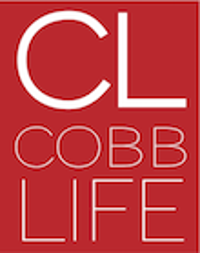

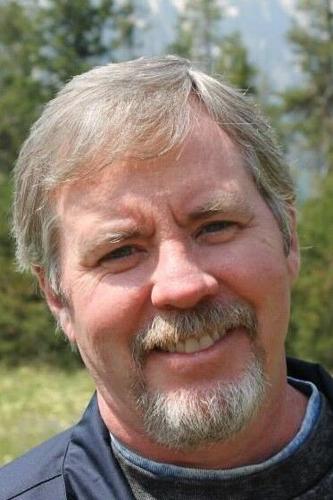
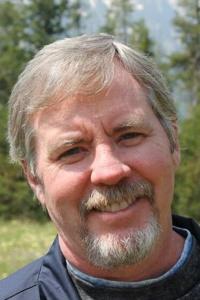
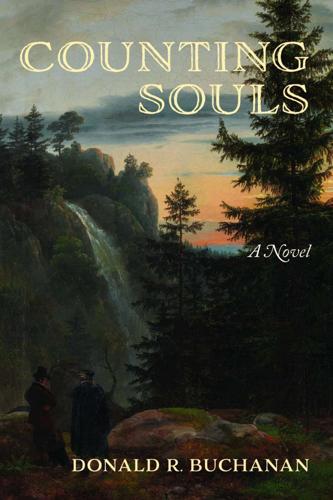
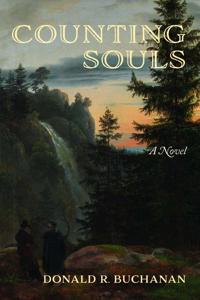
(0) comments
Welcome to the discussion.
Log In
Keep it Clean. Please avoid obscene, vulgar, lewd, racist or sexually-oriented language.
PLEASE TURN OFF YOUR CAPS LOCK.
Don't Threaten. Threats of harming another person will not be tolerated.
Be Truthful. Don't knowingly lie about anyone or anything.
Be Nice. No racism, sexism or any sort of -ism that is degrading to another person.
Be Proactive. Use the 'Report' link on each comment to let us know of abusive posts.
Share with Us. We'd love to hear eyewitness accounts, the history behind an article.